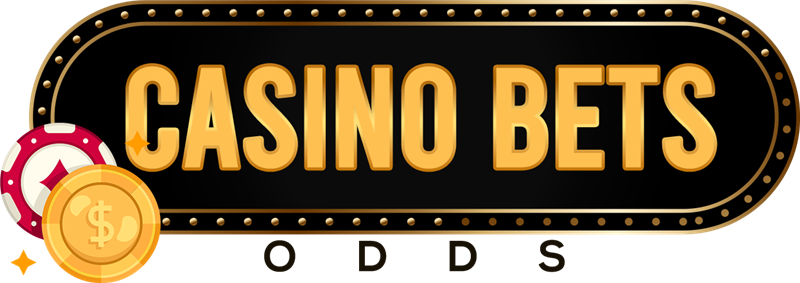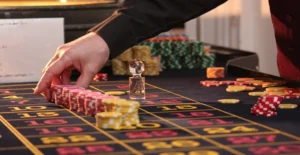So, you’re at the casino, having a good time, and maybe you’ve run a little low on cash. You might be wondering, Can you cash a check at the casino? It’s a pretty common question, and the answer is usually yes, but it’s not always as simple as just handing over a check. There are rules, limits, and sometimes even fees involved. This guide will walk you through everything you need to know about cashing checks at casinos, from what kind of checks they take to how they check your info, and even where the best places are to do it.
Key Takeaways
- Most casinos let you cash checks, but they usually have specific rules about what kind they’ll take.
- You’ll need to show ID, and sometimes a casino club card or even a credit card, to cash a check.
- Casinos often run checks on your credit history to make sure your credit is good.
- There are usually limits on how much cash you can get from a check, and these limits can change depending on the casino.
- Be ready for fees; cashing checks at a casino often costs you a percentage or a flat rate.
Can You Cash a Check at the Casino? Overview & Introductions
So, you’re at the casino, feeling lucky, but short on cash? Ever wondered, can you cash a personal check at the casino? The answer isn’t always straightforward, and it isn’t the same everywhere. Let’s break down what to expect when trying to cash a check at a casino.
Casinos often provide check-cashing services, but it’s not as simple as walking up to the cashier with any old check. They have rules, limits, and fees that you need to be aware of. Think of it like this: they’re in the business of taking risks on games, not on bounced checks.
Cashing a check at a casino is a privilege, not a right. Casinos are private businesses, and they can refuse service to anyone, especially if they suspect fraud or if you don’t meet their requirements. Always be prepared with alternative payment methods just in case.
Before you head to the casino expecting to fund your bets with a check, it’s smart to do a little homework. Find out what types of checks they accept, what documentation you’ll need, and what fees you might encounter. It could save you a lot of hassle and disappointment. Ticket redemption kiosks that play Keno are also an option to explore.
Here’s a quick rundown of what we’ll cover in this guide:
- Types of checks casinos accept.
- Requirements for cashing a check.
- Limits and fees are involved.
- Tips to maximize your chances of getting your check cashed.
- Top casinos are known for their check-cashing services.
What Types of Checks Do Casinos Accept? Personal, Payroll, & More
So, you’re wondering what kind of checks you can actually cash at a casino? It’s not always a straightforward answer, as policies can vary quite a bit from place to place. Generally, casinos are more open to certain types of checks than others. Let’s break it down.
Casinos often deal with a lot of cash, but they also understand that not everyone wants to carry large sums around. That’s where check-cashing services come in, but they’re not a free-for-all. They have to protect themselves from fraud and bad checks, so they have rules.
- Personal Checks: These are probably the most common type people try to cash. However, casinos are often wary of personal checks unless you’re a known customer or rewards member. They might require extra verification or set lower limits.
- Payroll Checks: These are generally viewed as more reliable than personal checks because they come from established businesses. Casinos are often more willing to cash payroll checks, but they’ll still want to verify your ID and might have limits based on the check amount.
- Government Checks: Social Security, tax refunds – these are usually the easiest to cash because they’re backed by the government. Casinos see them as low-risk, but again, ID is a must.
- Cashier’s Checks: These are checks issued by a bank, guaranteeing that the funds are available. Casinos usually treat these like cash, making them easy to cash out. They are a safe gambling practice.
It’s always a good idea to call the casino ahead of time or check their website to see what their specific check-cashing policies are. This can save you a lot of hassle and disappointment when you get there. Knowing their rules about the types of checks they accept, the required identification, and any associated fees will help you prepare.
Casinos might also have different policies for guests versus non-guests, or for members of their rewards programs. Being a member of their rewards membership can make things easier. They might also use electronic check verification systems to assess the risk of cashing a check. This involves checking your credit history and other databases to see if you have a history of writing bad checks. If you do, they’re probably not going to cash your check.
Ultimately, it’s all about risk management for the casino. They want to provide a service to their customers, but they also need to protect themselves from losses. So, be prepared to provide identification, possibly undergo a credit check, and potentially pay a fee. And remember, just because a casino cashes checks doesn’t mean you should gamble with more than you can afford to lose.
Casino Check-Cashing Requirements: ID, Credit Card, & Club Card

So, you’re thinking about cashing a check at a casino? It’s not quite as simple as walking up to the cage with a piece of paper. Casinos have rules, and they’re pretty serious about them. They need to verify who you are and make sure the check is good. Here’s what you’ll likely need:
- Photo Identification: This is a must. Think driver’s license, state-issued ID, or a passport. They need to know you are who you say you are.
- Credit Card: Some casinos require a credit card, possibly to link to your identity or as a backup in case the check bounces. It varies, but it’s good to have one handy.
- Casino Club Card: If you’re a regular, your player’s card can help speed things up. It shows you’re a known customer, and they might have some of your info already on file.
Casinos aren’t just being difficult; they’re trying to prevent fraud and money laundering. They also want to make sure they get their money if the check isn’t good. It’s all about risk management for them. Remember to budget for your visit and only gamble with the money you’ve set aside. Ticket redemption kiosks provide convenient e-check services for gaming patrons.
It’s always a good idea to call the specific casino ahead of time to confirm their exact requirements. Policies can change, and different casinos have different rules. Save yourself a headache and make that call.
How Casinos Verify Checks: Credit Scores & Guarantee Systems
So, you’re trying to cash a check at a casino? It’s not as simple as walking up to the cage and handing it over. Casinos have systems in place to protect themselves from fraud and bad checks. They don’t want to be left holding the bag, so they do their homework.
Casinos use a combination of methods to verify checks, and it’s more involved than you might think. They’re looking at your credit history, using check guarantee services, and even tapping into shared databases to see if you have a history of bounced checks at other casinos. It’s all about risk management for them.
Credit Checks: A Quick Look at Your Financial History
One of the first things a casino will do is run a credit check. This gives them a snapshot of your creditworthiness. They’re not necessarily looking for a perfect credit score, but they want to see if you have a history of responsible financial behavior. A poor credit score might raise red flags and could result in a lower check-cashing limit or even a denial.
Check Guarantee Systems: Insurance for the Casino
Casinos often use check guarantee services. These services act as a kind of insurance policy for the casino. The casino pays a fee to the service, and in return, the service guarantees that the check will clear. If the check bounces, the guarantee service covers the loss. This reduces the casino’s risk and makes them more willing to cash checks. These systems often use databases to track check-cashing activity across multiple locations.
Shared Databases: A Casino Network
Many casinos participate in shared databases that track check-cashing activity. If you’ve bounced a check at one casino, that information might be available to other casinos. This helps casinos identify potential risks and prevent losses. It’s like a warning system for bad check writers. So, if you’re planning on trying to pull a fast one, think again. The casino world is more connected than you might realize. If you are looking to play blackjack online, make sure you have the funds to do so.
Casinos are in the business of managing risk. They use a variety of tools and techniques to assess the risk associated with cashing a check. This includes credit checks, check guarantee services, and shared databases. The goal is to minimize losses and protect their bottom line. They aren’t trying to be difficult; they’re just being responsible.
Factors Affecting Verification
Several factors can influence how thoroughly a casino verifies a check:
- Check Amount: Larger checks usually trigger more scrutiny.
- Customer History: Regulars with a good track record might face less verification.
- Casino Policy: Each casino has its specific policies and procedures.
How Much Can You Cash? Limits & Casino-Specific Policies
So, you’re thinking about cashing a check at a casino? One of the first things you’ll want to know is how much you can cash. It’s not a free-for-all; casinos have limits, and these limits can vary quite a bit. It depends on the casino itself, your history with them (if any), and a few other factors. Let’s break it down.
Casino check-cashing limits are not uniform; they depend on several factors.
Casinos don’t just hand out cash without some kind of control. They need to manage their risk, and that means setting limits on how much they’ll let you cash. These limits aren’t always advertised, so it’s a good idea to ask before you get too far into the process. You don’t want to be stuck with a check you can’t fully cash.
Here’s a quick rundown of things that can affect your check-cashing limit:
- Your credit score: Casinos often run a quick credit check to assess your risk.
- Your history with the casino: If you’re a regular player with a good track record, you might get a higher limit.
- The type of check: Payroll checks might have different limits than personal checks.
- Casino-specific policies: Each casino sets its own rules, so what works at one place might not work at another.
It’s important to remember that casinos are businesses, and they’re in the business of managing risk. Check-cashing services are a convenience for their customers, but they’re not going to take unnecessary chances. That’s why they have limits and verification processes in place.
To give you a better idea, here’s a hypothetical table showing how limits might vary:
| Casino | New Customer Limit | Regular Customer Limit | Payroll Check Limit | Personal Check Limit |
| Casino A | $500 | $2,000 | $1,000 | $500 |
| Casino B | $200 | $1,000 | $500 | $200 |
| Casino C | $1,000 | $5,000 | $2,000 | $1,000 |
Keep in mind that these are just examples. The actual limits can be higher or lower, and they can change at any time. Always check with the casino directly to get the most up-to-date information. Also, remember that casino cash advance limits can be different from check cashing limits.
Fees for Cashing Checks at Casinos: Flat & Percentage Rates
So, you’re thinking about cashing a check at a casino? It’s good to know what you might pay for the convenience. Casinos usually charge a fee, and it can come in a couple of forms. It’s not always super straightforward, so let’s break it down.
Casinos make money on these transactions, just like banks do. They’re providing a service, and that service comes with a cost. The fees help them cover their own costs, like verifying the check and handling the transaction. The fee structure can vary quite a bit from one casino to another, so always check before you commit.
Here’s what you need to know:
- Flat Fees: Some casinos charge a flat fee, like $5 or $10, no matter how much the check is for. This might be better if you’re cashing a larger check.
- Percentage Rates: Other casinos charge a percentage of the check amount, like 2% or 3%. This could be more expensive for larger checks but cheaper for smaller ones.
- Minimum Fees: Some casinos have a minimum fee, even if the percentage would be less. For example, they might charge 2% with a $5 minimum. So, even if 2% of your check is only $3, you’ll still pay $5.
It’s important to ask about all the potential fees before you cash a check. Don’t assume anything. Casinos are businesses, and they’re not always upfront about these things. Knowing the fees ahead of time can help you decide if it’s worth it or if you should find another way to get cash. Also, remember that these fees are on top of any ATM fees you might encounter if you withdraw the cash.
It’s also worth noting that some casinos might waive fees for their best customers. If you’re a high roller or a member of their rewards program, it’s always worth asking if they can cut you a break. You never know until you ask. Keep in mind that e-check services are also an option at many casinos, and these may have different fee structures than traditional check cashing.
Payroll vs Personal Checks: What’s the Difference?
So, you’re thinking about cashing a check at the casino? It’s good to know the difference between payroll and personal checks. They aren’t treated exactly the same. Casinos look at these types of checks differently, and understanding why can help you avoid any hiccups at the casino cage.
The main difference boils down to the source of the funds and the perceived risk associated with each.
Payroll checks are issued by an employer to an employee, while personal checks are drawn from an individual’s bank account. This distinction affects how casinos assess their validity and the limits they might impose.
- Payroll checks often have a slightly higher acceptance rate due to the backing of a business.
- Personal checks might face closer scrutiny, especially if you’re not a regular player.
- Understanding these nuances can save you time and potential frustration.
Think of it this way: a payroll check represents wages earned, making it (usually) more reliable in the eyes of the casino. A personal check, on the other hand, is tied directly to your account, which can be subject to more variables.
Guest vs Non‑Guest Policies: Rewards Membership & Shuttle Cards
Casinos often have different rules for guests (those staying at the hotel) and non-guests when it comes to check-cashing privileges. It’s all about risk management and building customer loyalty. Let’s break down how these policies can affect you.
Rewards Membership Perks
Joining a casino’s rewards program, like the Players Club at Valley View Casino, can significantly impact your check-cashing experience. Here’s what you might expect:
- Higher Limits: Members often get access to higher check-cashing limits than non-members.
- Lower Fees: Some casinos waive or reduce check-cashing fees for their loyal rewards members.
- Faster Approval: Your check might get approved faster because the casino already has your information on file.
Shuttle Cards and Check-Cashing
Casinos sometimes offer shuttle services to nearby hotels or designated areas. While a shuttle card itself won’t directly influence your check-cashing ability, it can indirectly help. Here’s how:
- Proof of Stay: If you’re staying at a partner hotel, showing your shuttle card might help establish you as a guest, potentially easing the check-cashing process.
- Convenience: Using the shuttle means you’re more likely to visit the casino frequently, increasing your chances of becoming a known customer.
It’s always a good idea to inquire about specific guest and non-guest check-cashing policies directly with the casino. Policies can vary widely, and understanding the rules beforehand can save you time and hassle.
Tiered Benefits
Many casino rewards programs have different tiers. The higher your tier, the better the check-cashing benefits you’ll likely receive. This could include:
- Priority check-cashing lines
- Personalized service
- Even higher check-cashing limits
Casinos prioritize guests and reward members. They see them as more valuable customers and are often willing to offer more flexible check-cashing options to keep them happy and playing.
How Casinos Handle Two‑Party Checks & Endorsements
Casinos generally have pretty strict rules about accepting two-party checks and endorsements. It’s not as simple as just signing the back and handing it over. They’re in the business of minimizing risk, and these types of checks can be a bit riskier than, say, a payroll check made out directly to you.
Casinos usually prefer checks made out directly to the person cashing them. This cuts down on the potential for fraud or disputes about who the money belongs to. Think about it – if they start accepting every check with multiple signatures, it could open a whole can of worms.
Here’s what you should know:
- Two-Party Checks: These are checks made out to two people (e.g., “John Smith AND Jane Doe”). Cashing these can be tricky anywhere, but especially at a casino. Most casinos simply won’t accept them. They don’t want to get involved in any potential disagreements between the payees.
- Endorsements: Even if a check is made out to you, if you try to endorse it over to someone else to cash at the casino, it’s almost guaranteed to be rejected. The casino wants to verify your identity and creditworthiness, not someone else’s.
- Exceptions: There might be rare exceptions, especially for high-roller players with established relationships with the casino. But for the average person, don’t count on it. It’s always best to call ahead and ask about the casino’s specific policy.
Trying to cash a two-party check or an endorsed check at a casino is usually a waste of time. The policies are in place to protect the casino from fraud and legal issues. Save yourself the hassle and find another way to get your funds.
If you’re planning a trip and need to access e-check services, make sure you have checks made out directly to you, and be prepared to show ID and possibly a credit card or player’s card.
Electronic Check-Kiosks vs Cage Check-Cashing
Casinos offer a couple of ways to cash checks: the traditional cage and the increasingly popular electronic check kiosks. Both get you your money, but they work differently and have their pros and cons. Let’s break it down.
Electronic kiosks are becoming more common because they offer convenience. But the cage still has its place, especially for larger amounts or when you need personalized service. Choosing between the two often comes down to how much you value speed versus personal interaction.
Think of it this way: kiosks are like ATMs for checks. They’re quick and available, but impersonal. The cage is like going to a bank teller; it might take longer, but you can handle more complex transactions and get help if you need it.
Here’s a quick comparison:
- Speed: Kiosks are generally faster for smaller amounts.
- Convenience: Kiosks are available 24/7 and avoid lines.
- Personal Service: The cage offers assistance with complex issues.
- Transaction Limits: Kiosks often have lower limits than the cage.
- Fees: Fees can vary between kiosks and the cage, so check beforehand.
Ticket redemption kiosks are a great way to quickly get cash. They can handle a variety of transactions, including e-check services. The cage, on the other hand, might require more documentation and a credit check before you can cash a check. Remember that casinos run a credit check, and based on the results, the customer is authorized to write a check to the approved amount. If you’re looking to cash a check quickly and avoid lines, the kiosk is probably your best bet. For larger amounts or if you need help, the cage is the way to go. Some casinos also offer rewards, membership shuttle cards for guests.
How to Maximize Your Chances: What to Bring & Prep Ahead
Okay, so you’re planning to cash a check at a casino. It’s not always a straightforward process, but with a little preparation, you can seriously increase your odds of success. Think of it like prepping for a big game – the more you prepare, the better your chances of winning (or, in this case, getting your check cashed!).
First things first, make sure you understand the casino’s policies. A quick call ahead can save you a lot of hassle. Now, let’s get into the specifics of what you should bring and how to prepare.
Essential Documents
This might seem obvious, but it’s worth stating: bring the right documents! You’ll need more than just the check itself. Here’s a checklist:
- Valid Photo ID: This is non-negotiable. A driver’s license, passport, or state-issued ID is usually accepted.
- Second Form of ID: A credit card, debit card, or even a store loyalty card can work. The more, the better.
- Casino Club Card: If you’re a member of the casino’s rewards program, bring your card. It can help establish your identity and potentially increase your check-cashing limit.
- Checkbook (Optional): While not always required, having your checkbook can be useful for verification purposes.
Know Your Limits
Casinos have limits on how much they’ll cash, and these limits can vary wildly. Don’t assume you can cash any amount. It’s better to know beforehand. Call the casino and ask about their check-cashing limits. Also, be aware that your check-cashing limit might be tied to your play history or casino rewards tier. If you’re a high roller, you’ll likely have a higher limit. If you’re new to the casino, expect a lower limit.
Credit Check Considerations
Casinos often run a quick credit check when you try to cash a check. This isn’t usually a hard inquiry that will affect your credit score, but it’s still something to be aware of. Having a decent credit score can improve your chances. If you know your credit score is low, it might be worth trying to improve it before your casino visit. At the very least, be prepared to answer questions about your credit history.
It’s also a good idea to avoid any major financial transactions right before your casino trip. Opening new credit accounts or taking out large loans can negatively impact your credit score and raise red flags for the casino.
Building a Relationship
Casinos are more likely to cash checks for people they know and trust. If you’re a regular player, you’re already ahead of the game. If you’re new to the casino, consider playing a bit before trying to cash a large check. This shows the casino that you’re a legitimate customer and not just someone trying to take advantage of their services. Even a small amount of play can make a difference.
Alternative Payment Methods
While you’re trying to cash a check, it’s always good to have a backup plan. Credit card cash advances are an option, though they often come with high fees. Some casinos also offer e-check services through ticket redemption kiosks, which can be a convenient alternative. Having a backup plan can save you from being stranded without funds if your check is rejected.
Top Casinos for Cashing Checks: Caesars, Station, MGM & Others
It’s good to know which casinos are generally more accommodating when it comes to cashing checks. Keep in mind that policies can change, and it’s always best to call ahead to confirm the specifics for the location you plan to visit. Major players like Caesars Entertainment, Station Casinos, and MGM Resorts are often mentioned as options, but each has its own nuances.
While I can’t give you an exhaustive list that’s guaranteed to be 100% up-to-date, here’s a general idea of what to expect from some of the bigger names:
- Caesars Entertainment: Caesars properties are widespread, and their check-cashing policies can vary a bit from one location to another. Generally, they offer check-cashing services, but you’ll likely need to be a member of their rewards program and meet certain creditworthiness criteria. They might also have different limits based on your play history.
- Station Casinos: Station Casinos are primarily located in Las Vegas. They are known to provide check-cashing services, often with a focus on catering to residents. Their requirements might be slightly less stringent than some of the larger Strip casinos, but you’ll still need to provide identification and potentially undergo a credit check.
- MGM Resorts: MGM properties, like Caesars, are another major player. Their check-cashing policies are usually in line with industry standards, requiring ID, a credit check, and potentially a club card. Limits can vary based on your play and credit history.
It’s important to remember that casinos are businesses, and they need to manage risk. Check-cashing services are a convenience, but they’re not a right. Always be prepared to provide the necessary documentation and understand that approval is not guaranteed.
It’s also worth checking out some of the smaller or regional casino chains, as they might have different policies. Some might be more lenient, while others might be stricter. Don’t assume anything – always call ahead and ask about their specific requirements and fees. Remember to budget responsibly and only gamble with what you can afford to lose.
Frequently Asked Questions
Can I cash a check at a casino?
Yes, many big casinos do let you cash checks. But remember, each casino has its own rules about what kinds of checks they take, how much you can cash, and if there are any fees.
What kinds of checks do casinos accept?
Casinos usually take personal checks, payroll checks, and sometimes even government or business checks. It’s best to check with the specific casino beforehand to be sure.
What do I need to bring to cash a check at a casino?
To cash a check, you’ll likely need your driver’s license, a blank check, and your Social Security number. They might also ask for a casino club card or a credit card.
How do casinos make sure my check is valid?
Casinos often run a credit check to make sure the check is good. They might use special systems that guarantee the check will clear.
Is there a limit to how much I can cash?
The amount you can cash varies a lot. It depends on the casino and its specific rules. Some might have a daily limit, while others might base it on your credit history.
Do casinos charge a fee for cashing checks?
Yes, most casinos charge a fee for cashing checks. This could be a flat fee or a percentage of the check’s amount.
Is it easier to cash a payroll check or a personal check?
Payroll checks are usually seen as safer because they come from a company’s bank account. Personal checks are from your account, so casinos might be more careful with them.
Can I cash a check at a machine, or do I have to go to a person?
Some casinos have special kiosks where you can cash checks yourself, while others require you to go to the main cashier’s cage. Kiosks are often faster.
Daniel Chase is a seasoned casino analyst and iGaming writer with over 10 years of experience in the online gambling industry. He specializes in game strategy, casino odds, and player-focused reviews. Daniel is passionate about helping players make smarter decisions through transparency, real data, and honest insight.











